In our (fictitious) inaugural IIF awards ceremony, we will name the most deserving Hindi films, artists and performers for various customised categories of 2015. They have been our personal favourites, and aren’t distinguished on basis of critical and popular (or “everyone gets an award”) sections. Instead, we’ve made up many more ambiguous, borderline-racist and far more relevant titles.
Here we go.
Best Film That Will Never Win An Award: KAUN KITNE PANI MEIN
Director Nila Madhab Panda, who was responsible for the disastrous “Aids comedy” Babloo Happy Hai (?) after ‘I am Kalam’, somewhat makes amends with this well-executed, atmospheric satire on village politics, withering royalty, water shortages and religious hackjobs. There’s a bit much happening in this film, what with the necessity to have two young Swades-isque leads (Kunal Kapoor, Radhika Apte), but it’s nice to see veterans like Saurabh Shukla and Gulshan Grover pull their weight, quite literally, in a movie that finally does justice to its much abused genre.
Best Worst Film: HAMARI ADHURI KAHANI
No questions asked, this was every viewer’s most enjoyable (thanks to Emraan Hashmi’s whispery, deluded dialogues, “Kaun hai yeh Banjaaran?”) and most agonising (Rajkummar Rao, learn to say NO) experience at the movies this year. It had everything that made the so-bad-its-good a legal genre in India.
Most Surprising Good Film Nobody Has Heard Of: NANAK SHAH FAKIR
Idiotic religious rules forbid the use of live-action moving figures of Guru Nanak in any audiovisual medium. Nevertheless, the makers of this 140-minute biopic deliver on the technical front, managing to tell his story through the eyes of his loyal disciple and Rubarb player Bhai Mardani (Arif Zakaria). They construct the sweeping, well-photographed tale of Guru Nanak’s life, scored to a very Passion-Of-Christ-inspired soundtrack – from his birth in Talwandi to his work in Sultanpur, followed by his 25-year old Udasis (travels) in the country’s four directions.
Worst Performer: RAJPAL YADAV
Whatever happened to the eccentric little man who could crack his co-stars up by simply breathing in the same frame? Yadav has gotten into a self-flagellating mode lately, where he seems to sniff up a cocktail of ‘performance-enhancing drugs’ before bouncing off the walls on screen. He hams, jams, hyperventilates, over-Chaplinises and literally strangles the art of comedic timing by acting like a juvenile delinquent in every film he does. Case in point: Thoda Lutf Thoda Ishq, Baankey Ki Crazy Baarat, Welcome Back, and so on.
Most Misunderstood Film Of 2015: ROY
Roy wasn’t really misunderstood as much as it was dismissed for presenting something totally different from what its trailers promised. For starters, Ranbir Kapoor was more of a guest star in this, while Arjun Rampal and Jacqueline Fernandez (her only decent act so far) headlined the ambitious, glossy, over-stylised take on the risky film-within-film template. Rampal’s suave, womanising writer character was more in line of James Dean than a Vishal Bhardwaj or Anurag Kashyap, making the whole atmosphere difficult to relate to. An overdramatised fantasy take on life is fine, as long as one goes the whole hog. Debutant director Vikramjit Singh just about missed the bus with his fictional protagonist Roy, but it was an effort worth lauding.
Best Cinematic Moment: VICKY KAUSHAL in MASAAN
In his first film, Kaushal shows considerable restraint right up to the point he is supposed to break down into peals of heartbreaking grief with the proverbial bottle in his hand. “When will this pain stop?” he cries out to his friends, who attempt to physically shield him from a world that has already pierced his innocence. This is the defining moment of Neeraj Ghaywan’s film, and signals Kaushal’s arrival as a serious talent.
Worst Best Film: TANU WEDS MANU RETURNS
A purported sequel to the highly successful, but equally scattered ‘Tanu Weds Manu’, this film rides high on Kangana Ranaut’s entertaining double role. But it falls flat as a screenplay haphazardly attempting to capture the various facets, loud faces and cinematic twists of fate in a sinking Indian marriage.
Best Film That Could Have Been: MAIN AUR CHARLES
Director Prawaal Raman is known to push boundaries with his unconventional narrative styles and imagery. He almost pulls off a heist with his sexy, good-looking, exceedingly trippy biopic on the life and times of notorious serial killer Charles Sobhraj. He gets carried away by a narrative with immense potential, confusing the daylights out of (female) viewers who may have entered with the sole intention of enjoying Randeep Hooda pull of a French accent. They get that and more, but are left with several questions about the convict’s life and cat-and-mouse rivalry with commissioner Amod Kanth (Adil Hussain, who breathes life into the film)
Best Mainstream Character Of 2015: ANIL KAPOOR in DIL DHADAKNE DO
We’ve seen Kamal Mehra and many like him during our travels, or perhaps everyday if you’re a resident of upper-class Delhi. The patriarch in denial of his withering dysfunctional urban family, a wealth-driven power hound determined to bring back those glory days, and an ageing, intelligent North Indian man hiding through a smokescreen of culture and sophistication to feel young – and desired – again. Zoya Akhtar brings out all these shades in the inimitable Mr. Kapoor, who immortalises his best role since ‘Taal’ and takes forward the encouraging legacy of family-centric Bollywood sagas, finally giving us an antagonist worth rooting for.
Overrated Biopic Of 2015: MANJHI – THE MOUNTAIN MAN
Ketan Mehta takes an inspiring, path-breaking (literally) true story of human endurance, will and spirit and grinds it into a whiny, melodramatic, loud and cliched saga of dacoits, politics, revenge and bad makeup. And Nawazuddin does not look like Radhika Apte’s husband, in this universe or any other.
Best Underrated Performance: RANVEER SINGH in DIL DHADAKNE DO
His distinctly un-Ranveer act in DDD as the poor little rich boy using an adolescent crush as a crutch to break out of his sheltered existence. He’s perhaps a contemporary, urban Indian version of Rose in ‘Titanic’, and there’s much to admire about his (lack of) energy, smiling ways, jokey puns, little-brother support to a torn Priyanka Chopra and dewy-eyed gazes. This is a world apart from the overly bouncy, bubbly and adrenaline-pumping characters he usually chooses to essay on screen (and real life).
Best Actor: RANVIR SHOREY in TITLI
Shorey is downright terrifying as the older of two murderous, morally bankrupt, carjacking brothers who attempt to force the monster out of their youngest, Titli (Shashank Arora). He is unpredictable, violent, pathetic and desperate – a lethal combination of patriarchy and misogyny that becomes more apparent when one sees the quiet, traumatised face of his visiting ex-wife, and the clouded, weathered face of his once-abusive father (Lalit Behl).
Best Actor In A Bad Film: DHANUSH in SHAMITABH
Oh, R. Balki – what did you do? He took a perfectly serviceable, quirky plot and turned it on its head with some overbearing love (and obsession) for movies and Amitabh Bachchan, turning it into a long tribute to Bollywood’s most distinct baritone. But it is Dhanush, who last wowed us as the small-town stalker in Raanjhana, that lends some credibility to Balki’s off-the-rails vision. The unassuming South Indian superstar is perceptive, intelligent, bright-eyed and restless as the mute actor trying to pull off a Simone-ish heist, and will probably be overlooked for any award whatsoever because of the burning vanity vehicle he is trapped in.
Best Actress: DEEPIKA PADUKONE in PIKU
It’s the inwardness that made the difference. She belonged to her situation, and her face did more than her rants. She gave Tamasha one of its best scenes later in the year, but Miss Padukone plays the young, frustrated Bengalan-in-Delhi daughter to Amitabh’s hypochondriac ways with an innate sense of exasperation, understanding and touch that can only come from similar real-life experiences. She is perhaps the single-most improved actress in the industry since 2012, and takes it a notch higher, when she walks eye-to-eye with two of the finest male actors of our times (Bachchan, Irrfan) and even steals the show, especially during a complex last scene – where she is supposed to internalise the grief, relief and closure of an ambitious woman encountering a new beginning.
SPECIAL MENTION: KALKI for MARGARITA, WITH A STRAW
Best Sound Design: SUBHASH SAHOO for NH10
One of the rare cases of the highly underrated craft of sound design being invisible, yet so visible in the sense of the film’s changing landscapes and environments. Right from the swimming pool scene in the beginning, where Anushka’s Meera dives in to get over a harrowing incident, to the end where she is mourning the death of her partner, Sahoo demonstrates the merits of sync sound to enhance an atmospheric, stifling narrative, and the importance of being able to transition smoothly between shots in the same sequence (from inside and outside the SUVs) and angles in the same scene.
SPECIAL MENTION: MADHU APSARA for BADLAPUR
Worst Sound Design: BROTHERS
I don’t care who did it, or if it was the director’s decision (likely, given Karan Malhotra’s Agneepath), but this film was a depressingly deafening lesson in how not to use sound, background music, noise, dialogue, crescendos, punches, beats and punctuations. Not to mention Jackie Shroff’s sound-transcending performance as a wife-beating, alcoholic, tragically filmy and incompetent father of two fighter brothers.
Best Documentary: ALGORITHMS
British filmmaker Ian McDonald’s engaging exploration of the junior Blind Chess scene in India is, both, informative and very entertaining. With co-director Geetha J, he follows the Indie-Game template, documenting phases of the three lives of upcoming prodigies, as they navigate the highly competitive and thriving environment of local tournaments and world competitions. By using mentor and visionary Charudatta Jadhav as the guiding voice and face to these driven children, McDonald succeeds in crafting one of the best sports films in recent years.
Best Supporting Actor: SUMIT GULATI in TALVAR, NAWAZUDDIN SIDDIQUI in BADLAPUR
As the shifty, suspicious and crafty servant and prime accused (and then not) in the Noida Double Murder film, Mr. Gulati excels with his ambiguous gait and sly tone, especially in the controversial narcotic test scene – where he blabbers out bits and pieces of the night under the influence, before changing his stance shamelessly when sober again.
And Nawazuddin rules the badlands of Badlapur with his error-strewn, impulsive ‘murderer’ Liak, blurring the tropes and lines between a reluctant villain and a ruthless hero in commercial Hindi cinema.
Best Supporting Actress: SAI TAMHANKAR in HUNTERRR
Designed as the “Escapades of Mandar Ponkshe”, there was much to like about Hunterrr and its performers (especially Gulshan Devaiah), and though it was let down by some overambitious structural issues, Sai Tamhankar – as one of the ‘forbidden’ phases of Mandar’s college life – stood out for her Savita-Bhabhi-ish housewife act. Without saying much, and by doing a bit more, she shapes Ponkshe’s eventual personality, and lends credibility to his hormone-driven journey.
SPECIAL MENTION: RADHIKA APTE in BADLAPUR
Best Screenplay: VISHAL BHARADWAJ for TALVAR
There is no doubt that Mr. Bharadwaj, who is a far better writer than he is a director and musician, pretty much asks every question that needed to be asked in his gritty, darkly funny and subversive exploration of the Noida case. Three narratives, three outcomes, different angles, but a brief onus on Ashvin Kumar’s personal struggles marks him out as the cynical protagonist in a world populated with political antagonism and power play. Nobody is left in doubt about the impassioned stance of the filmmakers, and this is quite a remarkable achievement, given most investigative journalists and authors’ stamp of approval.
SPECIAL MENTION: VARUN GROVER for MASAAN
Worst Screenplay: DILWALE
What screenplay?
Best Production Design: MEENAL AGARWAL for DUM LAGA KE HAISHA
After Aankhon Dekhi, Meenal Agarwal yet again defines a distinctly small-town narrative through its tone, texture and vibe – in this case, Haridwar of the 90s – and makes a YRF production seem very non-synthetic, un-glossy and oddly authentic. Whether it’s the selection of the grey-green-pink dull colours of middle-class households, blue-white of Sandhya’s more cultured home, or the old-school flooring, the VHS cassettes, posters and Kumar Sanu wall-lyrics at Prem’s shop, this artist excels at creating a universe in which a director has no excuses to fail or fall short.
Best Cinematography: RAVI VARMAN for TAMASHA
After Barfi! and (Golyon ki Raasleela) Ram Leela, Mr. Varman makes sure that when we reminisce about these movies, vivid imagery and visuals jump to the mind instead of dialogues, actors and verbose sequences. Whether it’s his treatment of the couple’s escapist, surreal magic-light Corsica phase or the symmetric, mechanical and deliberately corporate framing of Veer’s routine life back in Delhi, the DOP provides Imtiaz Ali with the moving pictures he needs in order to experiment with his urban, why-the-same-story narrative.
Worst Production Design: PREM RATAN DHAN PAYO
Salman Khan is used as the only prop.
Best Editing: NITIN BAID for MASAAN
It just looked right. Three mutually exclusive lives at different corners of Benaras, and none of them seemed indulgent or a necessary script device. The film cut effortlessly between Devi’s (Richa Chadda) dire situation to Deepak (Vicky Kaushal) and Shaalu’s (Shweta Tripathi) blossoming inter-caste romance, and Vidyadhar’s (Sanjay Mishra) spiritual redemption with young Jhonta (Nikhil Sahni) at the banks of the Ganga. Though it is structured like a Babel-isque intercutting saga between various corners of the town, Masaan feels like one voice and one story with segregated elements.
SPECIAL MENTION: NAMRATA RAO for TITLI
Best Background Score: ANDREA GUERRA for DUM LAGA KE HAISHA
In lilting contrast to the earthy heartland imagery, this surprising score invokes the playfulness of Yann Tiersen, strings of Abel Korzeniowski and Ludovico Einaudi’s melody, providing viewers with subversive, quirky variations of the modern nuclear Indian family.
SPECIAL MENTION: KARAN GOUR for NH10 and TITLI
Best Ensemble: TITLI
It’s only appropriate that perhaps the most powerful and finest Hindi film of the year also boasts of a stellar group of actors. Director Kanu Behl and casting director Atul Mongia give this film the requisite amount of repulsive, frightening and ugly undertones by choosing the likes of Shashank Arora’s virginal face and Shivani Raghuvanshi’s naive eyes against Shorey and Amit Sial’s brutal, been-there-done-that personas.
Best Film: BADLAPUR
Sriram Raghavan finally breaks free with his utterly delicious tale of revenge and the hero-villain mainstream subversion – and literally forces the young, previously untested Varun Dhawan into a nightmarish journey of grief and redemption opposite the ambiguous motivations of Nawazuddin Siddiqui, Divya Dutta, Radhika Apte and Vinay Pathak. This one strikes that balance between pulpy madness and raw content.
Worst Actress: SUNNY LEONE
Actress?
Film That Didn’t Deserve Hate: BOMBAY VELVET
Anurag Kashyap’s Magnum Opus isn’t a bad film. However, with his name attached to it and rumours about its delayed schedules and unhappy producers, it became everyone’s favourite whipping boy. It had scale, scope and serious potential to become a defining, entertaining document on the city’s history, but Kashyap perhaps got carried away with his Scorsese meeting and made a contrived film that was above average by Bollywood standards, but fell way short of his own high standards.
Best Director: SRIRAM RAGHAVAN for BADLAPUR
Refer to ‘Best Film’ Category. Raghavan broke free from the limitations that made him the conflicted maker of Agent Vinod, and like his protagonist, unleashed a revenge-addled stream of utterly entertaining and strings-free homages to mainstream Hindi cinema. No heroes, no villains, no distinction between good and evil, and no happily ever after.
Best Debutant (Male or Female): SHWETA TRIPATHI for MASAAN
In her brief role as the educated, upper-caste girl gently falling for the shy, unassuming Domar caste boy (Vicky Kaushal) in Benaras, Miss Tripathi sparkles as the reluctant lover slowly finding courage and purpose in their forbidden relationship. She has Shlok Sharma’s ‘Haraamkhor’ ahead of her, which will cement her place as one to watch out for, but for now, her spirit shines in young Kaushal’s glassy, dewy eyes as their romantic gestures evolve from facebook-messaging to floating balloons in the night sky at small-town funfairs.
Best Populist 300-Crore Philosophy In Guise Of A Film: BAJRANGI BHAIJAAN
A Muslim superstar plays a Hindu Hanuman devotee/fanatic in an idealistic, crowd-pleasing (and fun) movie about India and Pakistan, religion, borders, brotherhood, Selfie songs, disapproving parents, lost little girls and mediocre news reporters. What’s not to love?

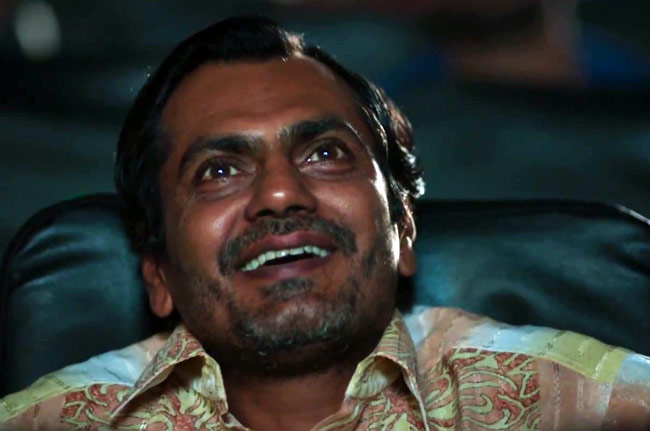
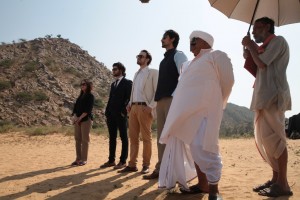
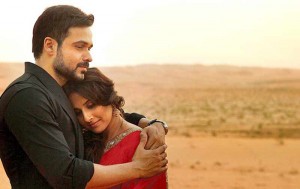

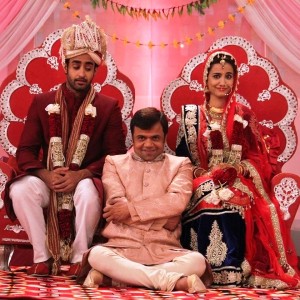
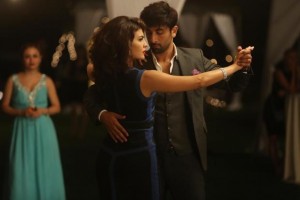
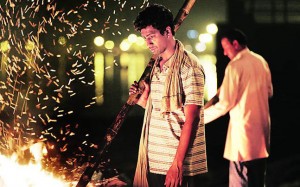
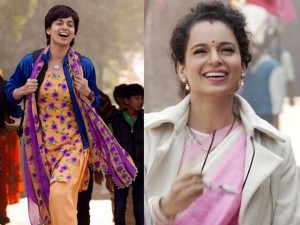
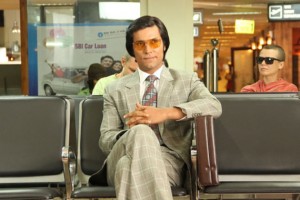
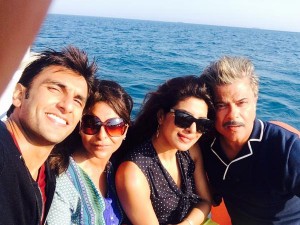
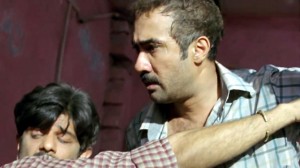
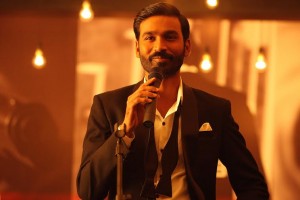
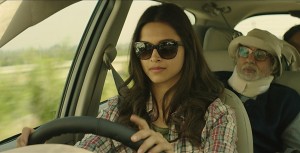
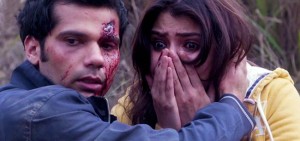
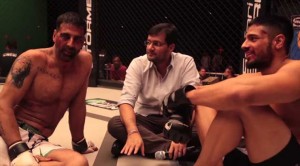
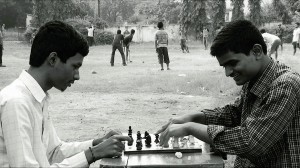
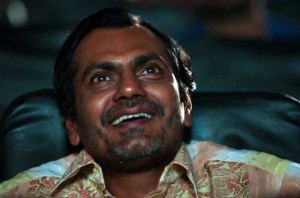
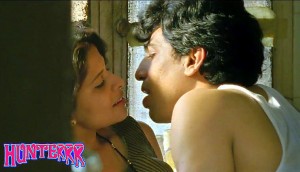
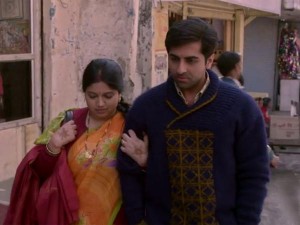
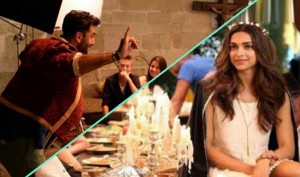
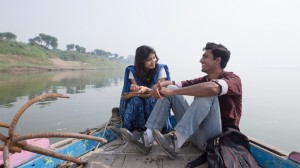
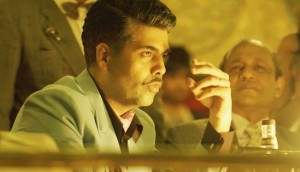
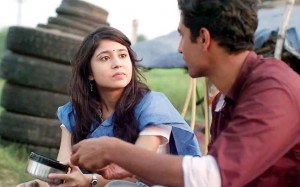
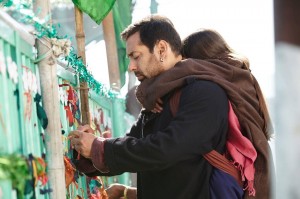



Leave A Comment
You must be logged in to post a comment.